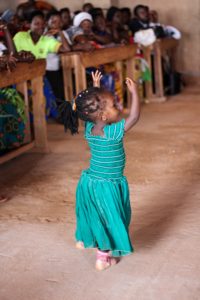Blog
Five Inspirational People Shaping Humanitarian Research
Written by Sebastian Wells
August 19, 2019
On 19th of August, World Humanitarian Day recognises humanitarian workers and those who have given their lives to humanitarian causes worldwide. To mark this occasion, we have decided to highlight five exceptional researchers from our member institutions who have made significant contributions to humanitarian studies.
1) Professor Jonathan Goodhand, SOAS University of London
Professor Jonathan Goodhand is Professor in Conflict and Development Studies at SOAS University of London. He is a force in humanitarian research thanks to his work on subjects such as the role of NGOs in conflict and peacebuilding, and post-conflict reconstruction. What’s more, he has worked with numerous government and multilateral organisations in South and Central Asia, including DFID, and ILO. In this capacity, he has served as a researcher and adviser. He has also managed humanitarian programmes in conflict situations. Currently Professor Goodhand is Principal Investigator for ‘Drugs and (dis)order: Building sustainable peacetime economies in the aftermath of war’, a major new research project financed by the Global Challenges Research Fund (GCRF). This project aims to generate a robust evidence base on drug and illicit economies and their effects on armed conflict, state-society relations, public health and livelihoods.
2) Dr Nada Abdelmagid, London School of Hygiene & Tropical Medicine
Dr Nada Abdelmagid is an Assistant Professor in Humanitarian Health Practice at LSHTM. Her research areas include healthcare responses in conflict and their surveillance, as well as decision analysis and outbreak prevention and response. As a medical doctor and epidemiologist, she has worked in technical advisory and programming for public health projects in a range of humanitarian settings. These include programmes in countries such as Sudan, Syria, Libya, and Somalia. Furthermore Dr Abelmagid is the lead researcher for RECAP’s Work Stream 1, which is working to develop improved metrics to evaluate the performance of humanitarian health responses.
3) Dr Simon Reid-Henry, Queen Mary University of London
A historical and political geographer, Dr Simon Reid-Henry has written extensively on humanitarianism. For example, he is working on the research project ‘Humanitarianism in the 21st Century’, which seeks to understand how and why humanitarian organisations are ‘going urban’. Alongside his role as Associate Professor in the School of Geography at QMUL, he also writes for publications such as The Guardian, New Statesman, and The Economist.
4) Professor Laura Hammond, SOAS University of LOndon
Professor Laura Hammond is Professor of Development Studies at SOAS, and an expert in fields such as forced migration and humanitarian assistance in protracted refugee situations. She has a wide range of research interests, including diaspora studies, conflict analysis, and food security. In addition Professor Hammond has worked in the Horn of Africa for over 25 years and has consulted for organisations such as UNDP, USAID, and Oxfam. She also leads the LIDC Migration Leadership team and is GCRF Challenge Leader for Security, Protracted Conflict, Refugees and Forced Displacement. What’s more, she is a Team Leader for the Research and Evidence Facility (Horn of Africa Window) of the European Union Trust Fund for Africa.
5) Professor Francesco Checchi OBE, London School of Hygiene & Tropical Medicine
Professor Francesco Checchi is Professor of Epidemiology and International Health at LSHTM and was awarded an OBE in 2017. He is an expert in public health responses to humanitarian crisis, the epidemiology of armed conflicts and natural disasters, and epidemic alert and response. He has extensive experience in humanitarian research, policy and response, having led Save the Children’s humanitarian health team and held roles with the World Health Organization and Médecins Sans Frontières. Alongside his professorship, he provides technical support for numerous humanitarian health actors worldwide. He is also an Associate Fellow at the Centre for Global Health Security at Chatham House.

